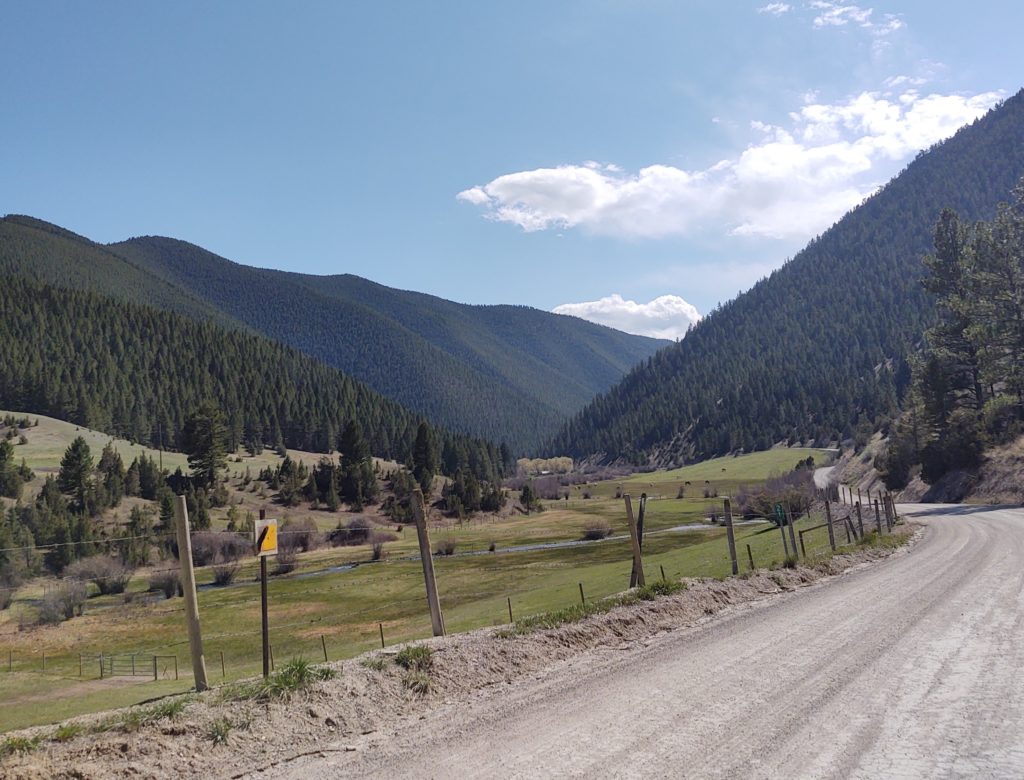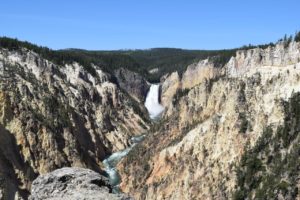By Maia Madrid
This will be my last blog for Energy Corps– in less than a week, I’ll be shoving everything I own in my car and driving east to Michigan, where I’ll be entering a PhD program in Energy and Environmental Policy. As temperatures out here have risen, I find myself yearning for a nice chilly breeze off Lake Superior– and, of course, I’m also excited to start my academic program. I also find myself reflecting on my time in Energy Corps and in Montana as a whole. Even beyond the pandemic, the switch to fully remote work, etc, it was much different than I anticipated.
Frankly, I don’t know what I expected. I certainly didn’t know when I arrived in Montana– I came into this program almost entirely in the dark as to what I was actually doing during my service. I had a vague vision of driving around the mountains in an electric car, going town to town like an electric prophet spreading the good news of clean transportation. That vision was– shockingly enough– absolutely inaccurate. Part of the lack of clarity, I later learned, was due to the delay of a project (bureaucracy, am I right?), and part of that was because the work was really going to be dependent on my drive and skillset.
At the time I entered the program, I had two primary skills I could apply: making fun lil’ maps and putting together fun lil’ graphics, both of which I was able to do abundantly. I also spent quite a bit of time doing things I didn’t expect: reviewing applications for grant money, reaching out to school districts and local governments, learning how to do green fleet analyses. I also discovered that I wasn’t able to do a lot of the few things I did expect to do, like outreach events and workshops with the general public.
Unfortunately, there won’t be a new class of Energy Corps members to pass my wisdom down to regarding my specific position. That said, I think I can make a couple generalized suggestions for anyone going into service, especially those serving in a more green-focused context.
- Wait to plan your service until you’re there– don’t come up with ideas of what you’ll be doing, don’t write a story in your head. Be entirely open to whatever comes your way. It’ll save a lot of time and keep you in a headspace where you’re ready and willing to roll with the punches.
- You may not like all parts of your service, and that’s okay! What matters is that you do what needs to be done anyways. Allow yourself to feel whatever disappointment, irritation, or boredom you’re feeling, and then move on– do the work, tolerate the bad, and focus on the good. For example, I learned that I have absolutely no patience for state bureaucracy, but that I love policy work. Tolerating the endless reviews, meetings, and paperwork of state government was a necessary part of my service, and it allowed me to learn more about the practicalities of enacting policy priorities.
- Always assume everything you’re doing will take longer than you think. This mostly applies to new skills or tasks you’re learning to do. Don’t just take a look at a new task, do the math in your head, and say “yeah, I can get this done in a week, no worries at all”, because almost certainly this task will take you twice as long as you think.
- Remember, your term of service is only a year, for better or worse. If you find out wherever you’re serving is not for you, you only have to be there a year. Do your best for that time and then wash your hands of it. If you absolutely love your service, that’s awesome! Remember, however, it’s only a year. How will you take what you’re learning here and apply it in the rest of your life? How will you maintain a service mindset outside of your service term?
I’ve been grateful to have this opportunity to serve in my community, even if it was different than anticipated. I know quite a bit of what I did here and learned here will follow me beyond the end of my service term, and I hope I’ve been able to make a similar impact. The service mindset that I’ve been able to grow while in Energy Corps is something I’ll eternally be thankful for, and plan to grow for the rest of my life.








